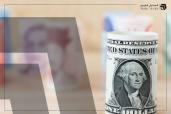DBS Bank provides important analysis and forecasts regarding the performance of the dollar and the presidential election results.

Philippe Wei, a foreign exchange market analyst at DBS Bank, stated in a research note released on Tuesday that the risks associated with the U.S. elections are dominating the markets as Trump makes a comeback, reflecting an increase in uncertainty which has led to a rise in the U.S. dollar and U.S. Treasury yields.
Recent polls have shown Donald Trump advancing over Kamala Harris for the first time in Pennsylvania and closely trailing Harris in Michigan, both of which are key swing states that don't exhibit clear leanings or preferences for either the Republican or Democratic parties.
Thus, assuming Trump wins the U.S. presidential election, the risks of a broader U.S. budget deficit are likely to increase, as calculations from the Federal Budget Committee suggest that Trump's proposed fiscal policies could lead to an increase in debt by $7.5 trillion over the next ten years, while Harris's plans could add $3.5 trillion in debt.
The economist added that the U.S. dollar could experience a rise due to potential increases in tariffs if Trump wins the election, particularly against Asian currencies.
At the same time, officials from the Federal Reserve, including Schmidt, Logan, and Kashkari, have called for a more gradual pace of reducing federal interest rates, creating a sense of uncertainty in the economy, which could enhance the strength of the dollar.
Daly also emphasized that monetary policy remains constrained, indicating there is no reason to halt the interest rate cut cycle, as the economic analyst explained that markets are now pricing in only 40 basis points of U.S. interest rate cuts by the end of the year.
After significant adjustments, the dollar rose by about 104 points, close to its highest level since August, and may not benefit as much from reduced expectations for future interest rate cuts.








